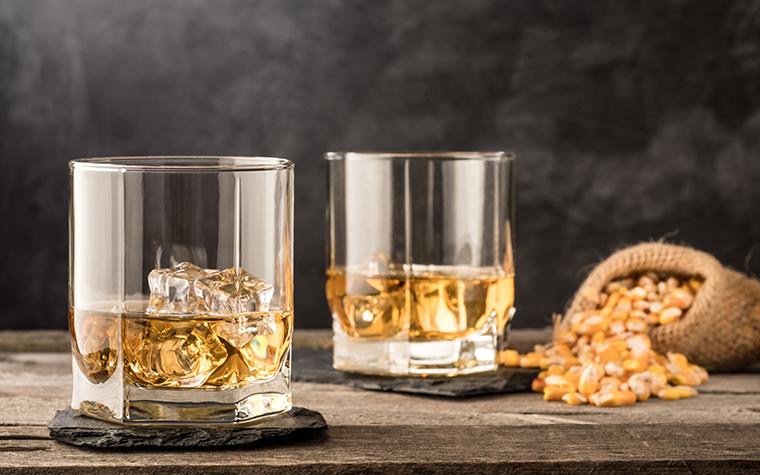KANSAS CITY, Mo. – Corn whiskey has long been an American tradition and a vital part of Missouri’s economy. University of Missouri Extension researchers are working to help corn growers that provide locally sourced corn to distilleries for brewed corn whiskey.
Missouri’s distilling history dates to the mid-1800s, when Holladay Distillery in Weston became one of the first bourbon makers west of the Mississippi River. As of 2024, the state was home to 71 active craft distilleries, according to the American Craft Spirits Association.
The corn whiskey business, as part Missouri’s broader distilling industry, has a substantial economic footprint, according to a 2020 report from MU Extension.
In the report, MU Extension assistant professor Alan Spell says that Missouri’s distillers employed 600 workers in 2019 and played a part in contributing $357 million to Missouri’s gross domestic product.
“Given the 30% growth in distilleries since that study, their impact is certainly greater in 2025,” Spell says. “That said, the increased competition and changing consumer preferences towards ready-to-drink and nonalcoholic cocktails make it increasingly difficult for small craft distillers to succeed.”
MU Extension horticulturist Todd Higgins grows research plots of heritage and specialty corn at MU Hundley-Whaley Extension and Education Center at Albany to help distillers succeed.
Unlike Irish and Canadian whiskies, which are made from cereal grains, American whiskey is made from corn, says Higgins. Corn is an American plant species, bred by Native Americans from varieties adapted to locales and uses over thousands of years.
“Missouri distillers seeking the ‘Missouri bourbon’ label can potentially benefit by collaborating directly with local farmers to source specialized corn varieties and explore place-based opportunities to make their product stand out in a crowded market, ” says Mallory Rahe, associate extension professor. “MU research showed that by the time that corn is turned into bourbon, its value has increased as much as eightfold. That said, producers will incur higher costs to grow truly distinct organic and or heritage corn varieties that may or may not help a product attract a strong consumer base.”
Most large-scale American whiskey producers use No. 2 yellow dent corn commonly grown throughout Missouri. As a commodity crop, a load of No. 2 yellow dent corn may arrive at a national distillery having been grown from anywhere.
Some craft distillers are bucking the No. 2 yellow dent trend by using open pollinated varieties of corn, such as Bloody Butcher or Country Gentleman, says Higgins. Unlike No. 2 yellow dent corn, open pollinated corn varieties have a slightly lower starch content than No. 2 yellow dent and are generally higher in protein. These differences influence the flavor of the finished whiskey product.
Many craft distillers are using red and blue colored corn varieties such as Jimmy Red and Ohio Blue Clarage, which are rich in anthocyanins. Not only are anthocyanins powerful antioxidants, but they also impart complexity to the flavor of a whiskey. Anthocyanins contribute notes of graham cracker, cinnamon and maple to whiskey’s flavor profile, says Higgins.
White corn is also used for making whiskey. Whiskey distilled from white corn has a sweet and buttery flavor profile with notes of vanilla and maple syrup, he says. Country Gentleman and Boone County White are examples of white corns often used in distilling with some cultivars having higher anthocyanin content than yellow corn.
Like wine grapes, corn grown for whiskey can develop flavor profiles unique to the environment where it grows, a phenomenon known as terroir. Terroir is the result of the interaction of three distinct contributing factors: the physical environment, biological environment and cultural practices.
Whiskey corn is not a single specialized variety or type of corn. Corn varieties selected for making whiskey are based on alcohol yield potential or flavor profile desires. Mass-produced whiskey tends to use corn having higher alcohol yield to reduce costs. Craft whiskey distillers can make smaller batches of whiskey using different corn varieties to achieve different sensations in the final product.
The bottom line is that it is corn that makes whiskey. “Another a-maize-ing Missouri agriculture product,” says Higgins.
